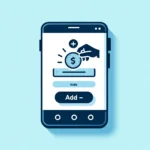The Allure of Savings Bonds
Savings bonds, for the uninitiated, are debt securities issued by the U.S. Department of the Treasury to help pay for the federal government’s borrowing needs. They have been a staple of American finance since their introduction in 1935. Designed as a safe and secure way for the average person to invest, they offer a fixed interest over a fixed period, making them a predictable and low-risk investment option. Over the decades, they’ve been popular gifts for birthdays and weddings, and many people purchase them as a long-term savings tool, especially for goals like education and retirement. Their allure lies in their simplicity, security, and the backing of the U.S. government. But, as with all investments, there are intricacies to understand, especially when it’s time to cash them.
1. Not All Bonds Can Be Cashed Immediately
While many believe that savings bonds can be cashed at any time, the truth is more nuanced. Most U.S. savings bonds have a minimum holding period before they can be redeemed. For instance, Series EE and Series I bonds must be held for at least 12 months before they can be cashed. Cashing them before they mature means you might lose out on some interest.
Here are 10 examples that illustrate the concept that not all bonds can be cashed immediately:
| Bond Type | Description |
|---|---|
| Series EE Bonds | Minimum holding period of 12 months. Cannot be cashed before this period. |
| Series I Bonds | Also have a 12-month holding period. |
| Treasury Bonds | Longer maturity, typically 20-30 years. Might incur a loss if sold before maturity. |
| Zero-Coupon Bonds | Don’t pay periodic interest. Issued at a discount and mature at face value. |
| Municipal Bonds | Might have call provisions preventing early cashing. |
| Corporate Bonds | Might have call protections or stipulations preventing early cashing. |
| Convertible Bonds | Can be converted into stock with specific timing requirements. |
| Savings Bonds with Education Tax Exclusion | Specific criteria and timing for educational tax benefits. |
| Callable Bonds | Can be “called” or repurchased by the issuer before maturity. |
| Bonds with Sinking Fund Provisions | Issuer buys back a portion yearly. If chosen for buyback, must be cashed in earlier. |
2. You Might Owe Federal Tax, But Not State Tax
One of the lesser-known facts about cashing savings bonds is the tax implication. The interest earned on U.S. savings bonds is subject to federal income tax. However, the silver lining is that it’s exempt from state and local taxes. Moreover, if the bond’s proceeds are used for qualified educational expenses, it might even be free from federal tax!
3. Physical Bonds vs. Electronic Bonds: Different Redemption Processes
If you’re holding onto old paper bonds, the redemption process is different from the newer electronic bonds. While electronic bonds can be cashed online through the TreasuryDirect website, paper bonds need to be taken to a local financial institution. And not all banks or credit unions redeem savings bonds, so it’s essential to check in advance. You can also buy them through broker. Check our comparison article for Interactive Brokers and Fidelity.
4. Lost or Stolen Bonds? They’re Replaceable!
Many people are unaware that if their savings bonds are lost, stolen, or damaged, they can be replaced. The U.S. Department of the Treasury maintains records of all savings bonds, ensuring that even if you face such unfortunate circumstances, your investment remains safe.
5. Cashing Too Early or Too Late Can Cost You
Timing is crucial when it comes to cashing savings bonds. If you cash a bond before its fifth year, you’ll lose the last three months of interest. On the flip side, if you hold onto a bond for too long after it has stopped earning interest, you’re essentially giving up potential earnings. It’s vital to know the maturity date of your bonds to maximise their value.
In Conclusion
Cashing savings bonds might seem straightforward, but there are intricacies that many are unaware of. By understanding these shocking facts, you can ensure that you’re making the most of your investment and avoiding common pitfalls. Always consult with a financial advisor or trusted source when making decisions about your savings bonds.
We hope you would find this article useful and invite you to check more articles in our Blog. Do not forget to share this article with your friends.



